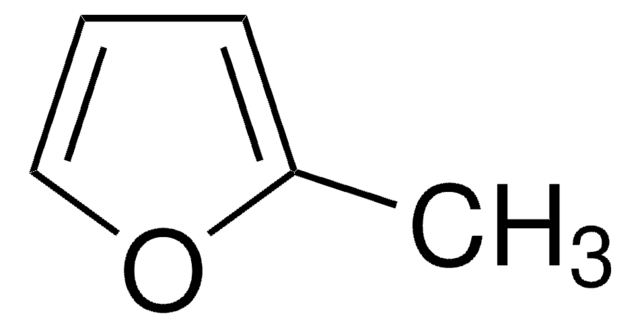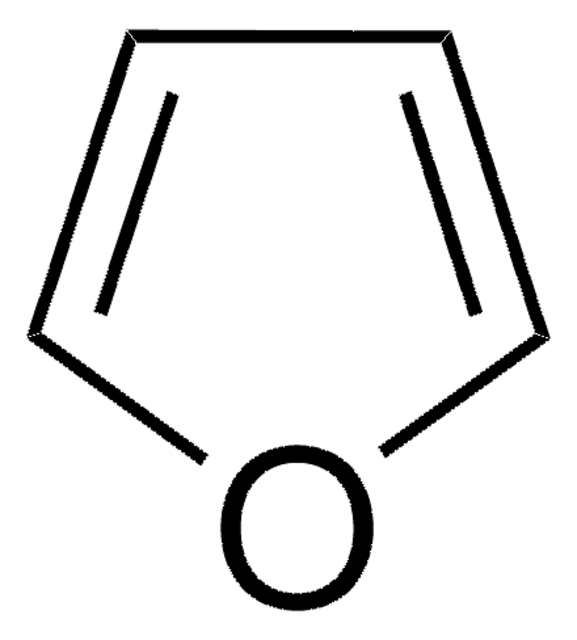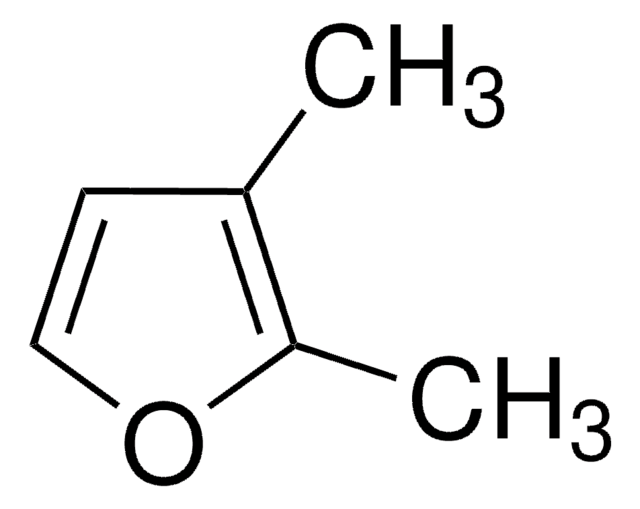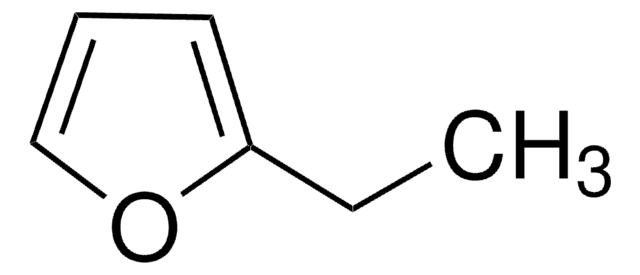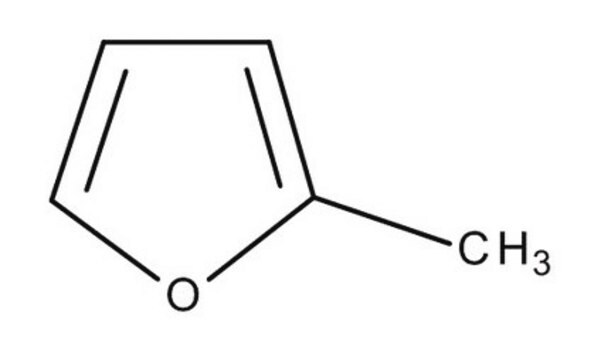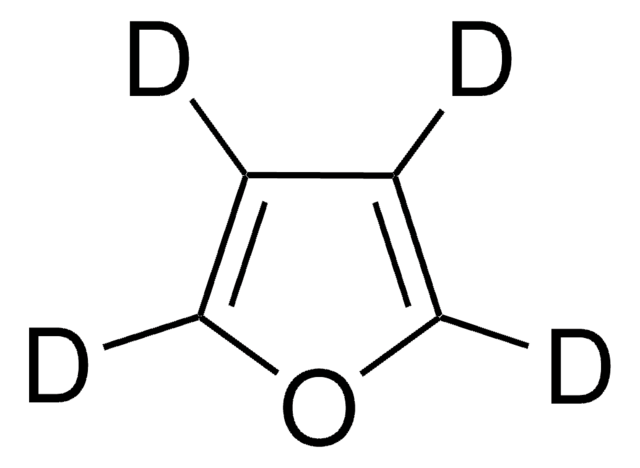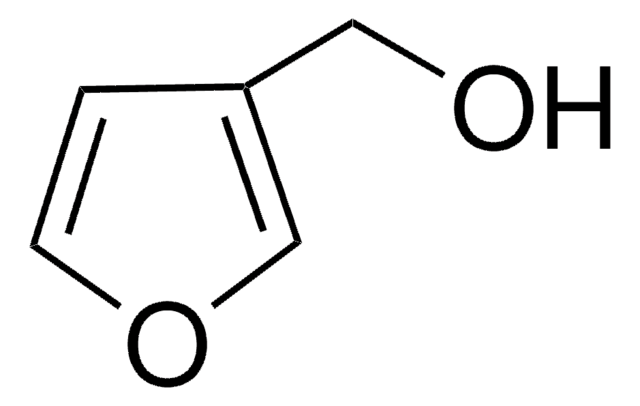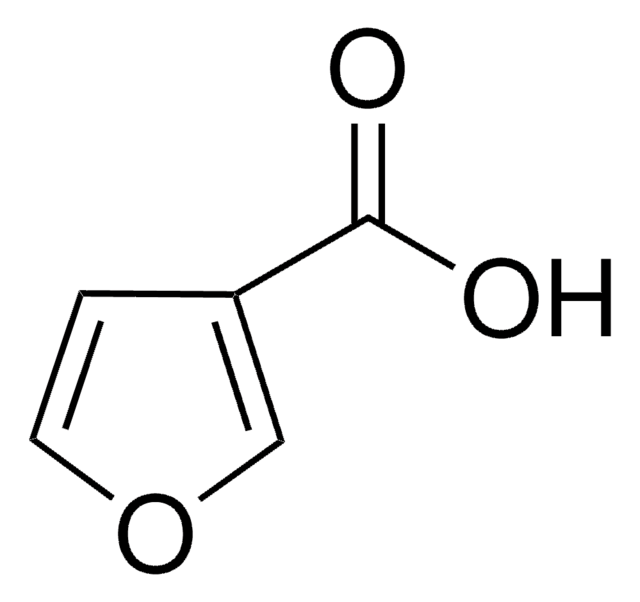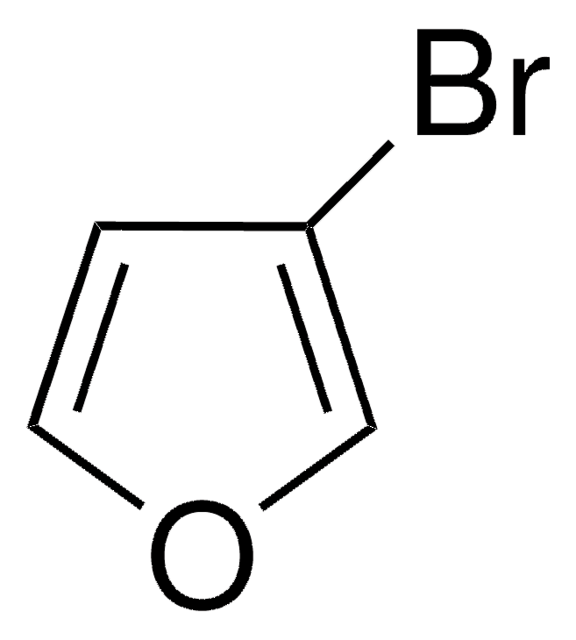Wszystkie zdjęcia(1)
Kluczowe dokumenty
About This Item
Wzór empiryczny (zapis Hilla):
C5H6O
Numer CAS:
Masa cząsteczkowa:
82.10
Numer MDL:
Kod UNSPSC:
12352200
Identyfikator substancji w PubChem:
Polecane produkty
Formularz
liquid
ciąg SMILES
Cc1ccoc1
InChI
1S/C5H6O/c1-5-2-3-6-4-5/h2-4H,1H3
Klucz InChI
KJRRQXYWFQKJIP-UHFFFAOYSA-N
Powiązane kategorie
Inne uwagi
Please note that Sigma-Aldrich provides this product to early discovery researchers as part of a collection of unique chemicals. Sigma-Aldrich does not collect analytical data for this product. Buyer assumes responsibility to confirm product identity and/or purity. All sales are final.
NOTWITHSTANDING ANY CONTRARY PROVISION CONTAINED IN SIGMA-ALDRICH′S STANDARD TERMS AND CONDITIONS OF SALE OR AN AGREEMENT BETWEEN SIGMA-ALDRICH AND BUYER, SIGMA-ALDRICH SELLS THIS PRODUCT "AS-IS" AND MAKES NO REPRESENTATION OR WARRANTY WHATSOEVER WITH RESPECT TO THIS PRODUCT, INCLUDING ANY (A) WARRANTY OF MERCHANTABILITY; (B) WARRANTY OF FITNESS FOR A PARTICULAR PURPOSE; OR (C) WARRANTY AGAINST INFRINGEMENT OF INTELLECTUAL PROPERTY RIGHTS OF A THIRD PARTY; WHETHER ARISING BY LAW, COURSE OF DEALING, COURSE OF PERFORMANCE, USAGE OF TRADE OR OTHERWISE.
NOTWITHSTANDING ANY CONTRARY PROVISION CONTAINED IN SIGMA-ALDRICH′S STANDARD TERMS AND CONDITIONS OF SALE OR AN AGREEMENT BETWEEN SIGMA-ALDRICH AND BUYER, SIGMA-ALDRICH SELLS THIS PRODUCT "AS-IS" AND MAKES NO REPRESENTATION OR WARRANTY WHATSOEVER WITH RESPECT TO THIS PRODUCT, INCLUDING ANY (A) WARRANTY OF MERCHANTABILITY; (B) WARRANTY OF FITNESS FOR A PARTICULAR PURPOSE; OR (C) WARRANTY AGAINST INFRINGEMENT OF INTELLECTUAL PROPERTY RIGHTS OF A THIRD PARTY; WHETHER ARISING BY LAW, COURSE OF DEALING, COURSE OF PERFORMANCE, USAGE OF TRADE OR OTHERWISE.
Ta strona może zawierać tekst przetłumaczony maszynowo.
Hasło ostrzegawcze
Danger
Zwroty wskazujące rodzaj zagrożenia
Zwroty wskazujące środki ostrożności
Klasyfikacja zagrożeń
Acute Tox. 3 Inhalation - Acute Tox. 4 Oral
Kod klasy składowania
3 - Flammable liquids
Klasa zagrożenia wodnego (WGK)
WGK 3
Temperatura zapłonu (°F)
No data available
Temperatura zapłonu (°C)
No data available
Wybierz jedną z najnowszych wersji:
Certyfikaty analizy (CoA)
Lot/Batch Number
It looks like we've run into a problem, but you can still download Certificates of Analysis from our Dokumenty section.
Proszę o kontakt, jeśli potrzebna jest pomoc Obsługa Klienta
Masz już ten produkt?
Dokumenty związane z niedawno zakupionymi produktami zostały zamieszczone w Bibliotece dokumentów.
Klienci oglądali również te produkty
S Gill et al.
Food and chemical toxicology : an international journal published for the British Industrial Biological Research Association, 111, 341-355 (2017-11-06)
A 90-day gavage study was conducted with 0.0, 0.02, 0.075, 0.25, 1.0 and 4.0 mg/kg bw/day dose groups of 3-methylfuran to identify a no-observed adverse effect level for hepatotoxicity and to characterize non-neoplastic effects including changes in gross anatomy, histopathology, clinical biochemistry
Aimei Wang et al.
Journal of food science and technology, 56(6), 2940-2948 (2019-06-18)
Fresh onions (Allium cepa L.) emit volatile organic compounds (VOCs) naturally in very low concentrations. The aim of the present study was to determine the emission rate of low-boiling VOCs from healthy and naturally infected onion bulbs at 4, 15
Anja Rahn et al.
Food chemistry, 272, 514-522 (2018-10-13)
This study examined the influence of consumer behavior on furan, 2-methylfuran, 3-methylfuran, 2,5-dimethylfuran and 2,3-dimethylfuran exposure in coffee. Coffees brewed using a filter, fully automatic, capsule machine or reconstituted instant coffee were found to have a significant different cup concentrations
Anja Rahn et al.
Food chemistry, 286, 22-28 (2019-03-05)
Coffee has been determined as the dominant source of furan within an adult's diet. This study investigates the influence of coffee condiment use and stirring on the retention of furan. Three condiment lipid compositions were investigated, 0%, 3.5% and 35%
Stijn Palmers et al.
Food additives & contaminants. Part A, Chemistry, analysis, control, exposure & risk assessment, 32(2), 161-169 (2014-12-20)
To this day, research for furan mitigation has mostly targeted the levels of food production and handling of prepared foods by the consumer. However, part of the furan concentrations found in commercially available food products might originate from chemical deterioration
Nasz zespół naukowców ma doświadczenie we wszystkich obszarach badań, w tym w naukach przyrodniczych, materiałoznawstwie, syntezie chemicznej, chromatografii, analityce i wielu innych dziedzinach.
Skontaktuj się z zespołem ds. pomocy technicznej